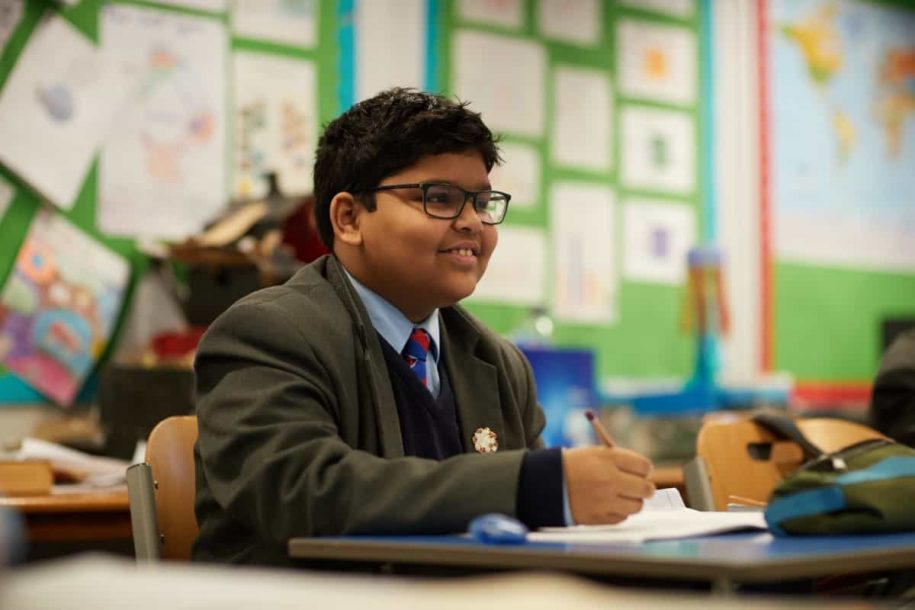Keeping to our resolutions

There is something about the New Year that makes us sit up and take stock of our lives. I suppose that the change of digit at the end of the year, coupled with the symbolic act of removing from the wall calendars with which we’ve lived for 12 months, reminds us of the inevitable passing of time and by extension our responsibility to make the most of whatever time remains to us. In addition to the traditional New Year’s resolution, it has become very fashionable in the last couple of years to consider a period of abstinence in January. This seemed to start with Dry January: the removal of alcohol after the excesses of the Christmas period, but there are now several options with Veganuary – the option of a vegan diet for a month – seeing an upsurge in popularity.
Although I try not to be predictable in my school assemblies, I find it difficult to resist the theme of good intentions when I first address the School in January, and I thought that I would share the dual challenge that I set down for the boys on Thursday morning.
The concept of ‘turning over a new leaf’ seems highly appropriate each January in a school environment, and I focused firstly on boys’ intellectual resolutions, urging them to take responsibility for their learning. Unfortunately, we are all too easily seduced into thinking that academic performance in a subject depends on an unchanging innate ‘ability’ that was miraculously sealed into one’s DNA at conception. It is easy for them to be disheartened when others in the class are scoring higher marks, and to explain the difference away by blaming a lack of ability over which they have no control. It is also tempting for the youngest following a curriculum that sees them engaging with up to eight different subjects per day and to ignore the difficulties they are experiencing in a particular discipline, thinking that they will be off the hook once the lesson is over.
Where we see impressive progress in our classes, it comes down to a boy’s resilience, to his refusal to be beaten. We know that success is a mindset. Successful people believe that they can achieve in spite of the conceptual hurdles they encounter and they don’t expect it to succeed without effort. Please help us by reinforcing this message. Seeking help from your teacher is what will lead to progress and improved grades. Burying your head in the sand to avoid admitting that you don’t understand will never achieve anything.
The second resolution I demanded of boys in my assembly was to consider how they could reduce their negative impact on the environment during 2020. I prefaced this by pointing out that Time magazine has awarded its prestigious accolade of ‘Person of the Year’ to Greta Thunberg in 2019 for her effectiveness in raising awareness of how climate change threatens the future happiness and prosperity of our children. I rather hope that some of your sons returned home on Thursday attempting to enlist you in the task of reducing the family’s carbon footprint. I tried to stimulate their thoughts by suggesting the following small gestures that cumulatively could have a genuinely positive effect if we all acted upon them:
- Can you get into the habit of walking or taking the bus for a short journey rather than demanding that a parent take you?
- Don’t take more food than you can eat at lunch.
- Take an empty bag with you whenever you need to shop for something.
- Turn the lights off when you leave a room and close doors to prevent heat loss.
- Help your family to change their purchase habits on household products, having researched the most environmentally friendly options.
- Persuade your parents to put a composter into the garden where you can leave any food waste to rot.
- Eat fewer takeaways that create huge amounts of packaging waste.
- Drink water instead of fizzy drinks and bring a reusable water bottle into school rather than buying single-use bottles and cans.
I aspire that our boys will show leadership in influencing others to do the right thing for the environment. Of course, governments need to take action on a large scale to reduce carbon emissions, and we, the 4 schools of the Loughborough Schools Foundation, have to do better too. Nevertheless, equally we should accept that we have an individual responsibility to do what we can. We don’t have to be perfect – we just have to make moves in the right direction. As a leading environmental campaigner recently put it: ‘we don’t need a handful of people doing zero waste perfectly. We need millions of people doing it imperfectly.’
